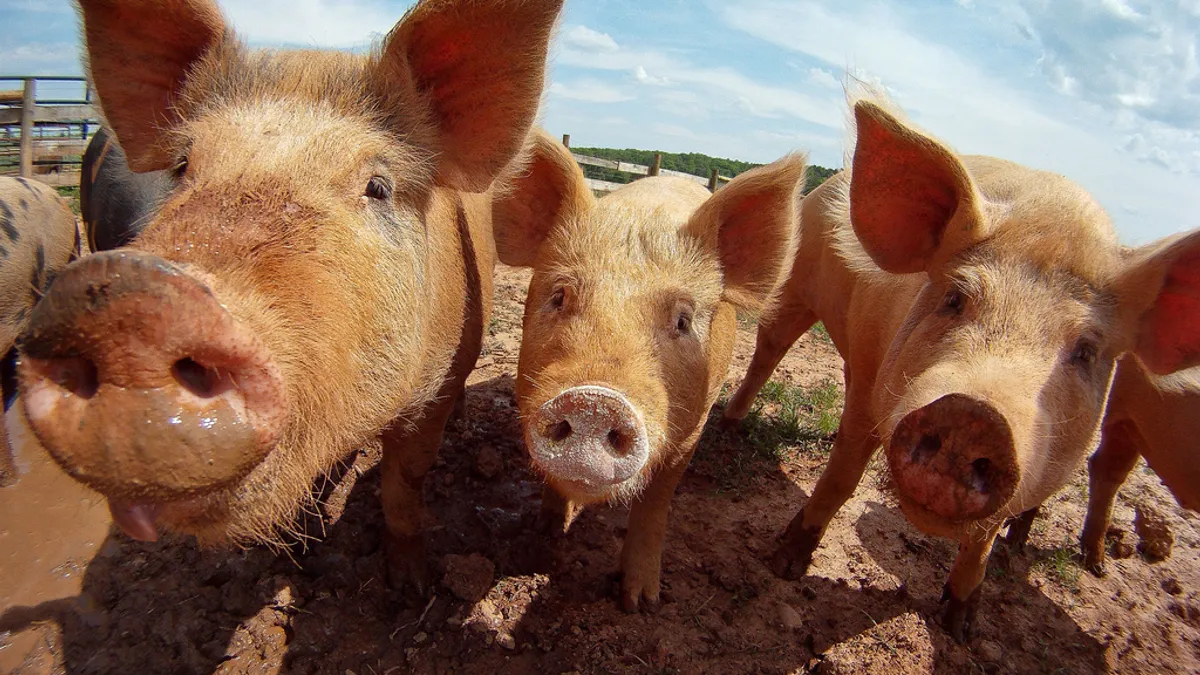Dive Brief:
- The U.S. government will purchase $78 million in meat from the U.S. arm of JBS Foods, the world's largest processor of beef and pork. The Brazilian company will receive the largest share of the $300 million the USDA has allocated to pork producers to cushion the blow of retaliatory tariffs put in place by China in the spring of 2018, according to an analysis by the Midwest Center for Investigative Reporting (MCIR).
- Many American producers will see no benefit from this government purchase since the farmers already have long-term contracts with JBS, so the price some producers receive will not change, MCIR found.
- U.S. Secretary of Agriculture Sonny Perdue told MCIR the purchase will help American producers by maintaining control over supply in the market and thereby bolstering prices. JBS reportedly underbid the next competitor for the government contracts by more than $1 per pound.
Dive Insight:
The case of JBS calls into question the efficacy of the Trump administration's attempts to mitigate some of the lost income American producers are facing due to the ongoing trade war. Agricultural producers have been hit particularly hard since China is a major purchaser of American pork and soybeans, and those products, among others, were early targets of China's retaliatory tariffs.
The U.S. government has several levers it can pull to offer agricultural producers relief from the temporary closure of a key export market. It can offer payments to make up the price difference in the marketplace caused by a dramatic uptick in supply, it can offer flat payments based on the size of farms growing affected crops and it can purchase goods to create demand and encourage price stability.
The most recent round of agricultural aid, announced by Perdue in May, includes government purchases of goods and acreage-based payments. The program totals $16 billion, which Perdue said is in line with the predicted impact on the U.S. agricultural economy. $14.5 billion will be "direct payments to producers," according to the USDA announcement.
The pork purchase contracts feed a growing list of examples of large food and farming operations reaping the most benefit from the tariff relief programs available. The Associated Press recently found an example of a large Missouri soybean farm, legally registered as multiple entities, that was able to claim $2.8 million in tariff relief payments despite the payment cap being $125,000 per product category, per operation.














